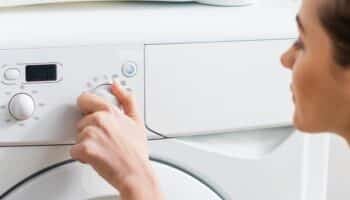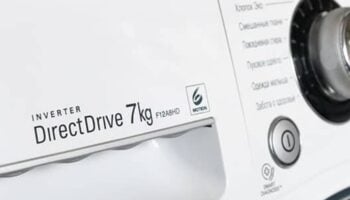We've independently reviewed this article to make sure it's as accurate as we can make it.
To find out more about our article creation and review process, check out our editorial guidelines.
Is your washing machine louder than a crying baby on a crowded plane?
How unfortunate! But at least you’re not alone, as thousands of people suffer from noisy washing machine cases daily.
I know how having your washing machine make noises constantly can be very annoying, especially if the loud sounds are disrupting your home’s peace and quiet.
But don’t worry; luckily, you came to the right place for answers. Below, I’ve prepared an article including the 5 easiest ways to make a noisy washing machine quieter for good.
If you want to make your noisy washing machine quieter, you can try placing some sound absorption pads on it, ensuring it’s level, or checking for loose components. If that fails, you can also try checking the drum balance or buying a newer appliance.
Keep reading and enjoy the silence!
Why trust us? This article was written by Craig Anderson and James Blackford.
Craig has helped thousands of other homeowners repair their appliances since 2016.
James is one of our resident appliance experts with over 16 years of experience. He currently works as a Master Technician for SquareTrade, and runs his own appliance repair business.
Why Your Washing Machine Is Loud
In most cases, a noisy washing machine results from aging components inside it. As we use our appliances cycle after cycle, some parts wear down. It’s only natural.
Of course, other possibilities must be covered to pinpoint simple aging as the culprit, so I hopped on a call with James and asked him about the situation.
“As the machine ages (this is especially true with appliances with moving parts), it simply gets louder, there’s more rattle and overall more noise“, he explained.
He also shared some great tips to counteract the noise and covered a couple of fixes for when repairs and observation are needed.
#1 Buy Sound Absorption Pads
Sound absorption pads can help make even the noisiest washing machine much quieter. And the best part is that all it takes is a quick trip to a car audio store and some money (don’t worry, it’s not a lot).
Absorption pads are typically placed in car speakers and subwoofers to prevent rattling and make the sound as concise and clear as possible. If the pads can reduce rattling in a car’s audio system, they can definitely help make your washing machine quieter!
As James explained: “If you stick those pads in inconspicuous places in the machine, it will really reduce the noise. You can’t use too many. In fact, if you can access the inside frame of your appliance, you might want to stick them there“.
#2 Make Sure the Washing Machine Is Level
A common cause for a noisy washing machine is poor leveling or imbalance.
If you’ve ever sat on a wobbly table, you’ve probably noticed that the banging the legs make against the floor is really loud and annoying. Now imagine how much worse the banging is when your washing machine is spinning at several thousand revolutions per minute and hitting the floor!
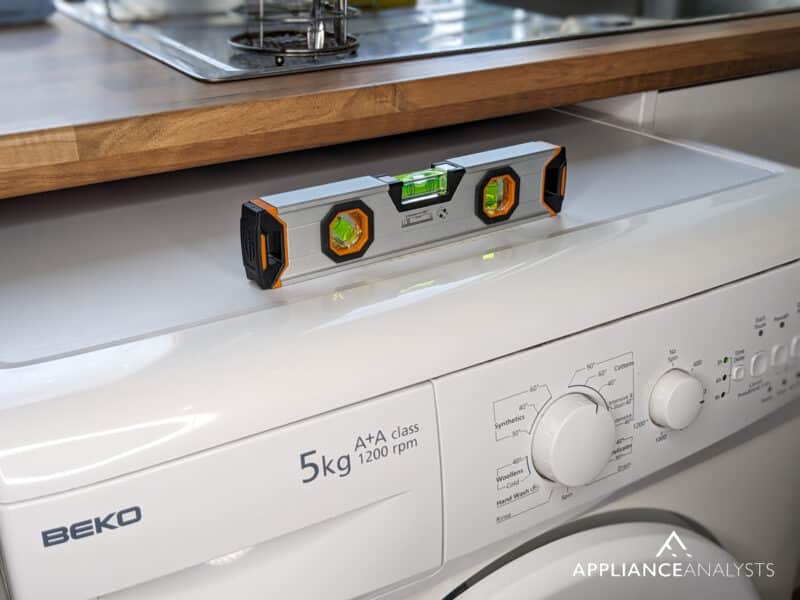
Luckily, addressing leveling-related vibration is very easy and can make a night and day difference in terms of the noise your washing machine makes. You can try many things to make your washing machine level – from something as quick as adding some cardboard under a leg or two to make them taller to manually adjusting the legs on the unit whenever possible.
#3 Check for Loose Components
Loose components could also explain a noisy washing machine. Unlike refrigerators, range hoods, or air fryers, washing machines must rotate constantly at high speeds to deliver clean and dry clothes.
And while most washing machine manufacturers take movement into account when designing them, sometimes a component or two can be knocked loose over time.
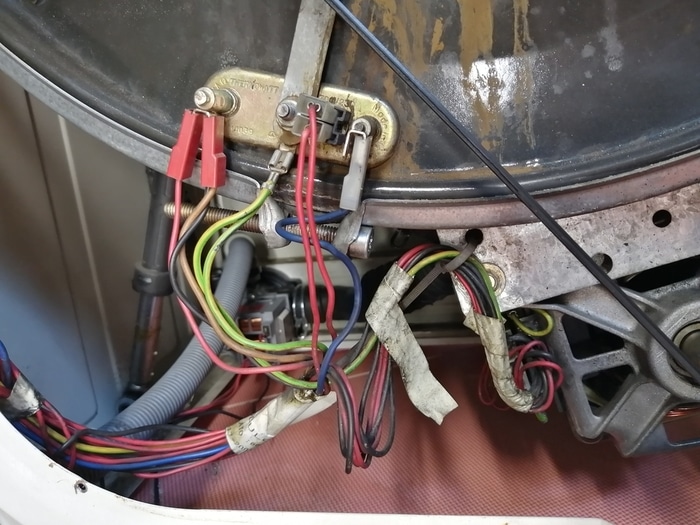
Checking for loose components is not the most straightforward task in the world, but it’s also not as complex as, say, replacing the motor inside the appliance, so there’s really nothing to worry about.
To check for loose components, please follow the easy steps below:
- Unplug the washing machine from the wall outlet.
- If you need to move the appliance to a more comfortable spot to work on it, please do so carefully.
- Provided your washing machine has a removable back panel, look for the screws holding the back panel in place and undo them.
- Once you’ve undone the screws, you should have a clear view of your washing machine’s internal components. Check for anything loose and tighten any screws that could use a couple more turns.
- If there’s nothing loose, then the source of the noise is likely coming from elsewhere. If so, please reassemble the washing machine carefully.
#4 Check Drum Balance
An imbalanced drum inside the tub could also explain a noisy washing machine.
Washing machines are carefully designed to work under very specific conditions, so if your drum is unbalanced, it could be banging against other parts of the appliance, causing the strong noise you’re hearing.
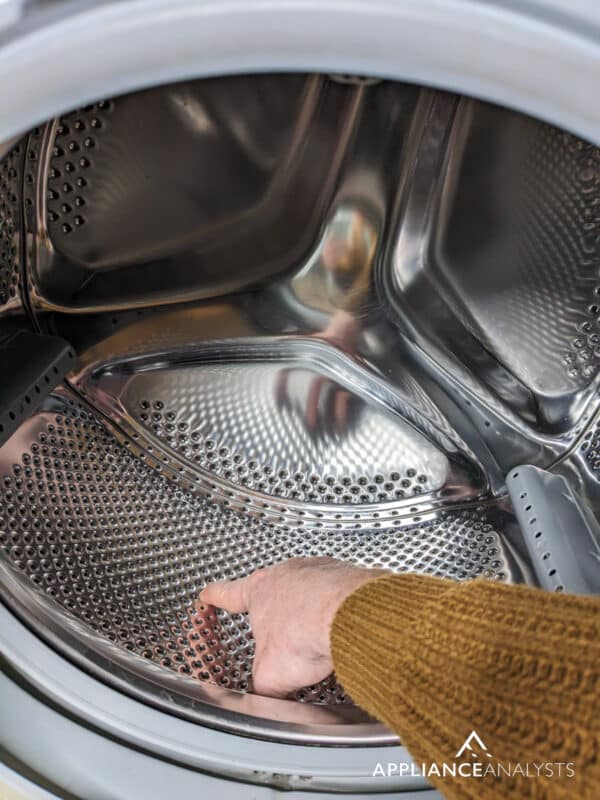
Usually, when I see an unbalanced washing machine drum, I recommend throwing in a small load of clothes and observing carefully.
If you notice excessive movement or banging, chances are the drum’s out of balance. You can also try double-checking that the washing machine is level which, if you’ve been following this guide to a tee, you likely already did.
But hey – it can’t hurt to be sure!
#5 Upgrade Your Washing Machine
Upgrading your washing machine should be your last resort.
Once you’ve tried everything and the issue persists, you’ll have no choice but to call a professional in for repairs and a diagnosis. The person visiting your home should explain your options and whether it’s worth spending money on repairs or if you’re better off just going shopping.
Like any other appliance, washing machines wear out over time until they stop working or start being noisy and causing problems.
The average washing machine should last between 10–15 years with proper care and timely maintenance. So, if your washing machine is over a decade old, upgrading to a newer model is what makes the most sense.
How Much Does the Average Washing Machine Repair Cost?
For the average washing machine repair, you can expect to pay between $50-$450, with the high-end being around $575 and the low-end $85.
The price range will vary depending on what you need to be fixed and how long the repair takes. Typically, the more complex the process, the more you’ll pay your technician.
Can the Noise Damage Your Washing Machine?
Some noises are not necessarily bad for your washing machine. However, if the noise source comes from something being loose, the drum banging the sides of the appliance, or anything similar, then yes – it’s possible that the noise could be bad.
Common Washing Machine Noise Types
Some common washing machine noises aren’t normal and could indicate a larger issue. Here are some of the most common washing machine noise types and what they mean.
Banging
Loud banging coming from your washing machine is typically related to the suspension rods inside the appliance losing lubrication. The suspension rods are a key element of your washing machine’s movement, so the washer can move erratically when they’re not properly lubricated.
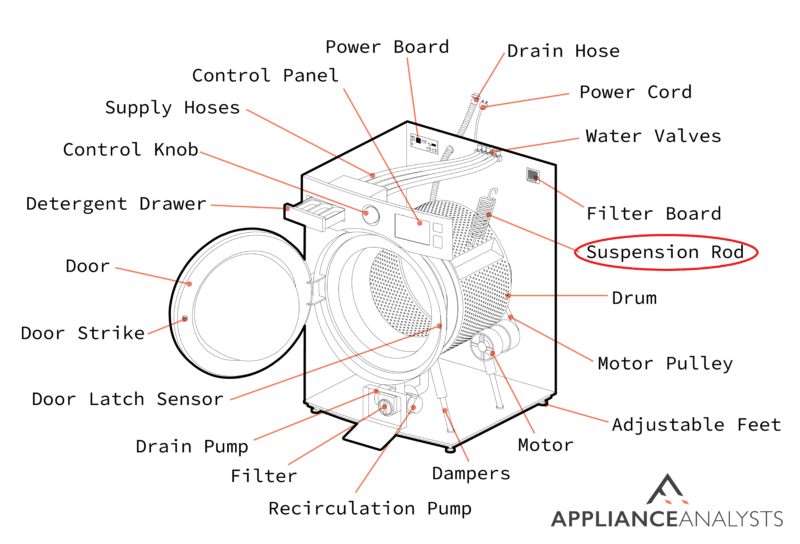
There are many other possible causes for banging, but, in my opinion, you’ll want to check the suspension rods first.
Humming
Humming within your washing machine can be concerning, and in many cases, justifiably so. From what I’ve seen over the years, a loud humming or whirring sound typically indicates a drain pump failure. When the drain pump is going bad, humming means that there’s enough power for it to be working, but the pump itself can’t keep up.
Squealing
A high-pitched squeal in your washing machine typically indicates a reduction in water flow within the unit. Washing machines need enough water pressure to do your laundry and work efficiently.
In cases of squealing, I recommend looking at your inlet valve filters and cleaning them if necessary.
Beeping
A beeping washing machine can indicate many things depending on whether the beeping is random or steady. For example, if your washing machine is beeping 3 times, chances are you overloaded it, the door latch is bad, or a piece of clothing is stuck somewhere it doesn’t belong.
On the other hand, if the beeping is random, more often than not, a fault in the frontal control board is to blame.
Conclusion
That about covers it!
When you’re desperately trying to make your noisy washing machine quieter, convenience can turn into inconvenience rather quickly.
Luckily, as I hope this piece has helped you better understand, addressing most of the common causes behind a noisy washing machine is fairly simple, quick, and free. Remember to always check for loose components, ensure that the washing machine is level, and consider its age.
Thank you very much for sticking with me all the way to the end. If this article proved useful in answering your most burning questions, please check out our other incredible resources below and consider subscribing to our newsletter.
I wish you nothing but the best.
— Craig.






